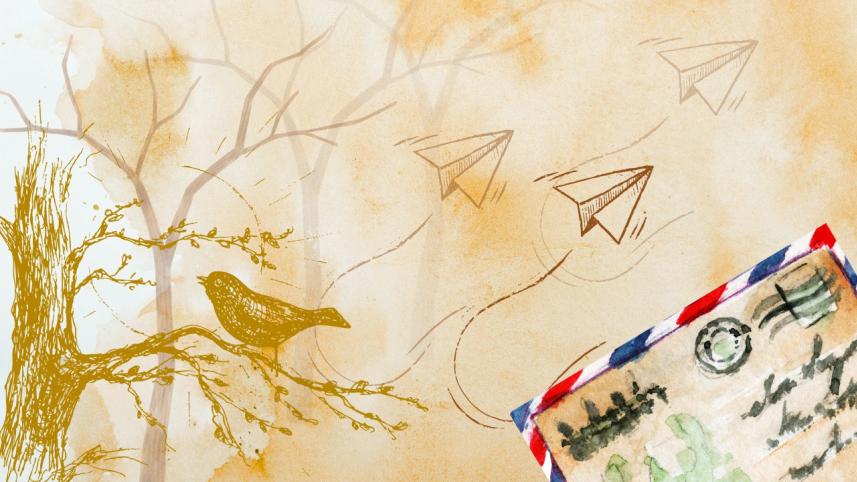A visit before the journey

Before returning to Australia, I felt a quiet urgency to visit my elderly and ailing relatives in Dhaka. Not just a social obligation—it was something deeper, a whisper from within. I heard such visits were acts of virtue, but for me, it was more about connection, memory, and respect.
A few days ago, I went to Katasur to see an elderly aunt recovering from Chikungunya. Now, after many years, I'm heading to Ruppur to visit another aunt, 85 years old and frail from age. As our rented car made its way through the city's chaotic landscape, I tried to find my aunt's address on Google Maps. Synthia, my companion, teased me: "You came here in 2018. Don't you remember the route to her house?" But Dhaka is a city that sheds its skin every few years. After seven or eight years, even Ruppur, located at the furthest corner of the city, felt foreign now. Thankfully, our driver, Hasan, had no trouble finding the place.
Back in 2018, I brought my mother to visit this same aunt. My mother, then in her twilight years, had been eager to reconnect with family. I remembered the two women chatting warmly on the sofa, their conversation flowing like a river of shared memories. Today, things were different. The aunt lay in her dim bedroom, curtains drawn, and the air heavy with gloom. Her face bore the unmistakable marks of time—missing teeth, sunken cheeks, and she looked like a jaded black-and-white photograph, framed by age. She loved watching cricket on TV…no more. I noticed on her bed a religious text, now the only means to spend her idle time.
I sat on a wooden stool close to her bed, unsure what to say. Should I ask about her health? Her medications? Instead, I asked gently, "Do you remember when I came with my mother?" Her face lit up. She hadn't forgotten. It felt like a bridge across time.
Her voice was hardly audible, but she wanted to speak. I, now hard of hearing myself, relied on Synthia to interpret. She sat beside her on the bed, translating the aunt's murmurs with care.
Back then, the aunt's youngest son, Faisal, had been there too. He fetched Dalpuri from the local restaurant to entertain me; he, for sure, was aware of my indulgence in Dhaka street food. Faisal had been a thoughtful soul, living with his mother and caring for her. His love for books was evident—two towering bookshelves in the lounge were packed with titles by Zafar Iqbal, Edward Said, and Salman Rushdie. I wondered if I had noticed them during my last visit. Faisal passed away three months ago, claimed by a rare disease. Faisal breathed his last at a Dhaka hospital. But the news of his death was not immediately revealed to his mother. She came to know about it as she listened to the local mosque's on-air announcement of his son's funeral arrangement. Now, Faisal's wife had taken over caring for the aunt, with help from a full-time caregiver named Rahima.
Upstairs, Faisal's elderly mother-in-law lived alone. I considered visiting her, too. I reckon, she would have been happy to receive us, even though we're distant relatives. So many elders, I thought, were quietly slipping through the gap of loneliness. Echoes from their silent heartbeats ripple through the air.
As Hasan drove us back home, I felt the weight of time and memory pressing gently on my heart. These visits aren't just about saying goodbye—they are about honouring lives, preserving stories, and offering a moment of warmth in a world that often forgets its oldest voices.
Faruk Kader writes stories from his fractured heart. He is an uprooted BUET civil engineer, yet to settle either in Bangladesh or Australia. He can be reached at faruk.kader718@gmail.com.
 For all latest news, follow The Daily Star's Google News channel.
For all latest news, follow The Daily Star's Google News channel.
Comments